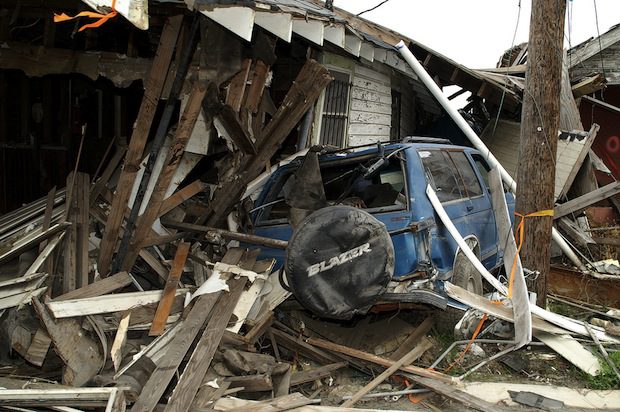KDW & The Geographical Cure

Apologies for the light blogging today. I’ve been literally bedridden all day. This stuff is beginning to look like walking pneumonia, though I don’t think we’re quite there yet. Pray that the magic of antibiotics will kick in soon.
There’s been a lot of commentary here and on Twitter about my post from late last night, “A Hard Case, For Trump,” in which I commented at great length about the extremely polarizing Kevin D. Williamson essay excoriating the white working class. The piece is behind National Review‘s paywall, but I excerpted the key part of it in my earlier post. Basically, he tells dysfunctional white people who are unemployed or underemployed that their problems are their own fault, and to get off their butts and get the hell out of their dead-end towns.
Some people are put out with me for not 100 percent condemning KDW’s essay. Though I am largely unsympathetic to his point, for reasons I explain, he is not entirely wrong. His fundamental mistake, I think, is to mistake a partial truth for a complete one.
I remembered just now, though, a Malcolm Gladwell piece that came out last summer, in which he looked at social science research done on poor New Orleanians that had been sent into diaspora by Hurricane Katrina, and discovered that they were by and large doing much better in exile than they had been back home prior to the storm. Turns out that the most reliable predictor of whether or not someone is likely to make it out of poverty is whether they live around other poor people. (“They mean that the things that enable the poor to enter the middle class are not primarily national considerations—like minimum-wage laws or college-loan programs or economic-growth rates—but factors that arise from the nature of your immediate environment.”
Here’s the post I did on the Gladwell piece when it was published. It’s kind of a summary of the original piece, which is here if you want to see it. And here’s an excerpt from the Gladwell report:
“I think that what’s happening is that a whole new world is opening up to them,” Graif said. “If these people hadn’t moved out of the metro area, they would have done the regular move—cycling from one disadvantaged area to another. The fact that they were all of a sudden thrown out of that whirlpool gives them a chance to rethink what they do. It gives them a new option—a new metro area has more neighborhoods in better shape.”
That is, more neighborhoods in better shape than those of New Orleans, which is a crucial fact. For reasons of geography, politics, and fate, Katrina also happened to hit one of the most dysfunctional urban areas in the country: violent, corrupt, and desperately poor. A few years after the hurricane, researchers at the University of Texas interviewed a group of New Orleans drug addicts who had made the move to Houston, and they found that Katrina did not seem to have left the group with any discernible level of trauma. That’s because, the researchers concluded, “they had seen it all before: the indifferent authorities, loss, violence, and feelings of hopelessness and abandonment that followed in the wake of this disaster,” all of which amounted to “a microcosm of what many had experienced throughout their lives.”
Katrina was a trauma. But so, for some people, was life in New Orleans before Katrina.
Quoting social scientists, Gladwell said that even if their social networks are holding them back, it’s very hard for poor people to extricate themselves from those networks and relocate. Besides, many of them don’t have the money to do so. It’s not as easy as Williamson seems to think. That said, Katrina didn’t leave the poor any choice — and the fallout, a decade later, shows that leaving New Orleans, however unwillingly, was a good thing for most of them, because it enabled them to get out of a deadly rut.
Subscribe for as little as $5/mo to start commenting on Rod’s blog.